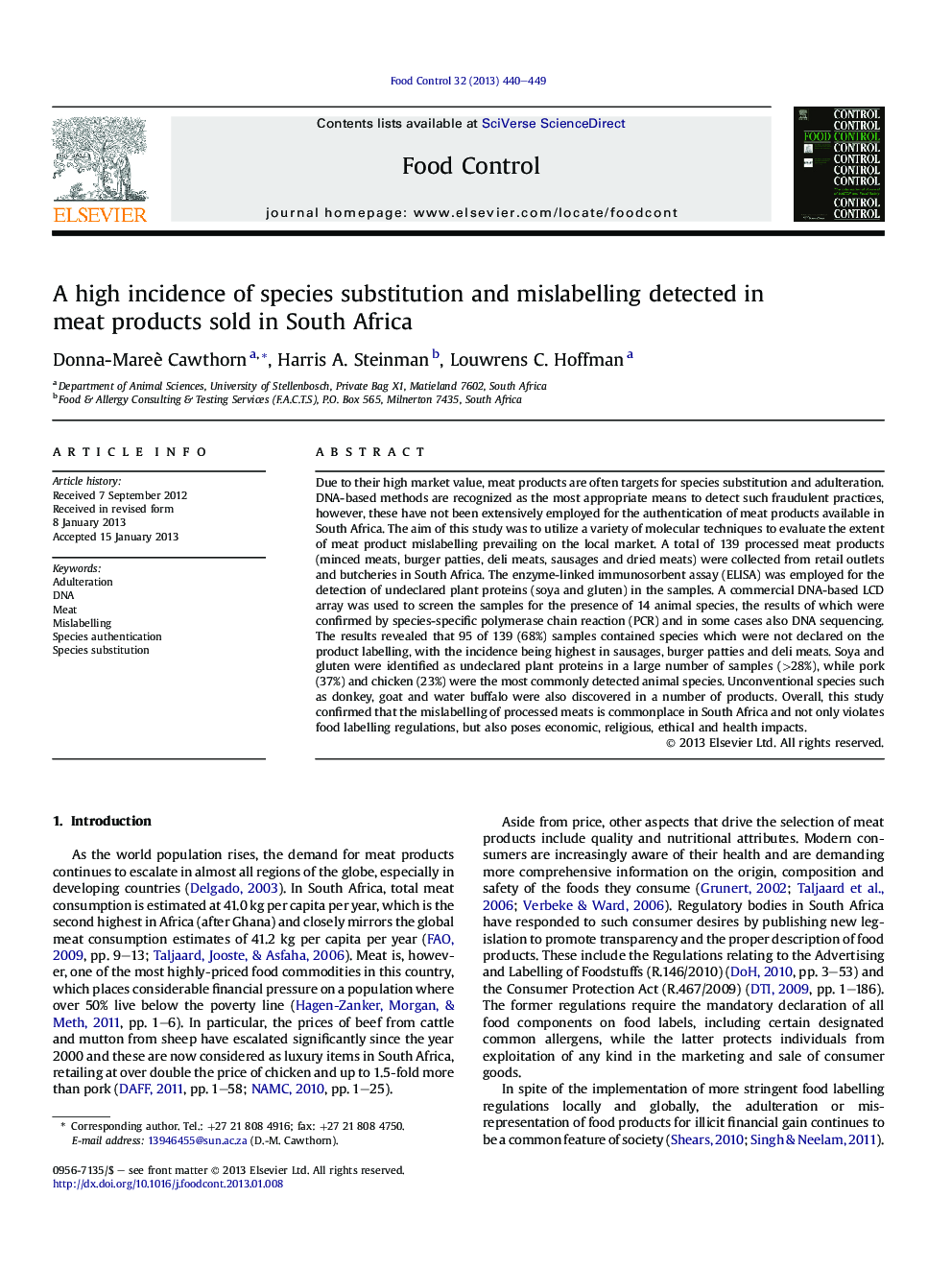| Article ID | Journal | Published Year | Pages | File Type |
|---|---|---|---|---|
| 4559386 | Food Control | 2013 | 10 Pages |
Due to their high market value, meat products are often targets for species substitution and adulteration. DNA-based methods are recognized as the most appropriate means to detect such fraudulent practices, however, these have not been extensively employed for the authentication of meat products available in South Africa. The aim of this study was to utilize a variety of molecular techniques to evaluate the extent of meat product mislabelling prevailing on the local market. A total of 139 processed meat products (minced meats, burger patties, deli meats, sausages and dried meats) were collected from retail outlets and butcheries in South Africa. The enzyme-linked immunosorbent assay (ELISA) was employed for the detection of undeclared plant proteins (soya and gluten) in the samples. A commercial DNA-based LCD array was used to screen the samples for the presence of 14 animal species, the results of which were confirmed by species-specific polymerase chain reaction (PCR) and in some cases also DNA sequencing. The results revealed that 95 of 139 (68%) samples contained species which were not declared on the product labelling, with the incidence being highest in sausages, burger patties and deli meats. Soya and gluten were identified as undeclared plant proteins in a large number of samples (>28%), while pork (37%) and chicken (23%) were the most commonly detected animal species. Unconventional species such as donkey, goat and water buffalo were also discovered in a number of products. Overall, this study confirmed that the mislabelling of processed meats is commonplace in South Africa and not only violates food labelling regulations, but also poses economic, religious, ethical and health impacts.
► Molecular methods were used to investigate mislabelling of meats in South Africa. ► Undeclared plant or animal species were detected in 95 of 139 (68%) meat samples. ► The most common undeclared constituents included pork, chicken, gluten and soya. ► Unconventional species (donkey, goat and water buffalo) were found in some meats. ► Cases of mislabelling were of economic, legal, religious and public health concern.
